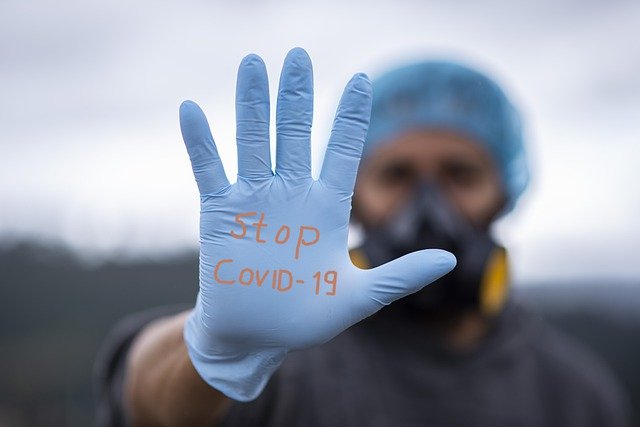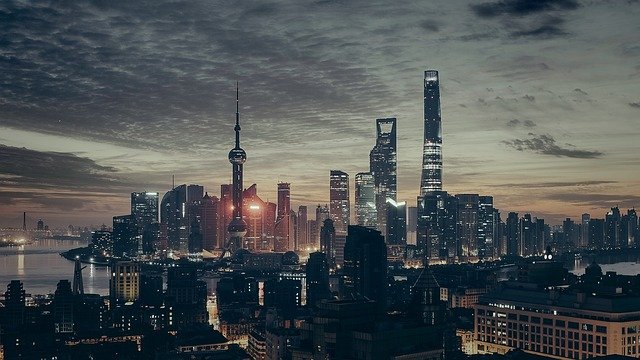The world will not be the same post-corona. Many industries will have to rebuild themselves while taking the risk of infection into consideration. Even after this initial crisis is over, there will be a second and third corona wave, so “going back to normal after the COVID incident” is going to be nothing but an illusion.

For example, the way we work. Are we going back to work in that dense, island-style office layout? Now that telework has proven functional, going back to that will increase health risks but not productivity (of course there will be some balance between traditional work style and telework). How about transportation? Moving by plane, shinkansen (bullet train), or commuting on a fully packed train – would traditional transportation styles still be recommended? And how about cafés and restaurants? To what extent would they need to take measures to prevent the disease?
At this moment, the public debate over how to go about business closures and loss of compensation is heating up in Japan. Normally, there is no compensation for business losses. What can be provided as a temporary measure is support intended as a social safety net; in other words, a certain amount to compensate for the loss of basic income at the individual level. Initially, the Japanese government announced monetary support of JPY300,000 per household, but only for those whose income has halved compared to pre-corona time, which turned out to be too complicated and came with strong public opposition. Thus it eventually got replaced with a simpler alternative: JPY100,000 per person (however, the operationalization will be another debate).
Let’s think about this. To provide this support for each of Japan’s 120 million people will cost JPY12 trillion. The amount per person may be enough to live for up to 2 or 3 months (but for a single person, maybe up to a month), so there is no way that this would be sufficient if the impact goes beyond that period. The government won’t be able to sustain this support, either. Clearly, all countries are facing financial crises, but in the case of Japan, the national debt-to-GDP ratio is over 200%, which is the largest among developed nations. Fiscal austerity should have been thoroughly executed precisely in preparation for this kind of dire emergency and Japan will now have to face the consequences.

One of the mainstream views regarding the “after-corona society” (or “with-corona society”) seems to be that the society will shift from efficiency-first style (i.e. urban-oriented) to the very opposite. Some argue that it will shift from closed to open, from dense to sparse. A new term “Kai-so-ka (open-sparse)” has been coined (as opposed to “Ka-so-ka”, which describes the predominant phenomenon of depopulating rural areas in Japan) by Mr. Kazuto Ataka. He explains that there will be a value shift, for example, causing a population transition from Tokyo to rural areas, as people avoid densely populated areas and instead seek a cheaper and more natural lifestyle in the countryside of Japan. As such, the coronavirus is a fundamental challenge to modern civilization.
Would it be that simple, though? Arguments of this sort have existed for more than 10 years now, yet still people choose to live in urban environments. This is due to the cultural abundance that cities offer as well as the opportunity for direct human interaction; after all, the more digitalized we become, the more value it will bring us. Urbanization is characteristic of human civilization, and that hasn’t changed even after numerous past infectious disease events, including the Spanish flu. I don’t think that firmly established system would change so easily. In addition, of course, there is the infrastructural problem in the countryside of Japan; because of non-stop depopulation, there are no resources left to support local infrastructure.

At the same time, the coronavirus indeed challenges us to reshape our society and lifestyle. My view is that there is a third option, which is to change how the city should be: that is, open and sparse cities, efficient but disease resilient cities. We must embark on fundamental industrial reform, instead of just asking for mere compensation and hoping to go back to normal. While we are locked in like this, it is not the time to look back and criticize the past. Instead, it is the time to start a constructive discussion based on collective wisdom to find out what actions are needed to evolve from here. If a business owner’s spirit is to just endure this situation until the disease goes away and things go back to normal, I fear he won’t survive the post-corona market.
Before I conclude this post, I would like to introduce a famous line found in the Rizairon written by Hokoku Yamada, a scholar and advisor of Bitchu Matsuyama Domain (now Okayama Prefecture) in the late Edo period:
Those who govern well stay outside of matters and observe their essence instead of succumbing to them. However, those who govern financial matters these days are completely overwhelmed by immediate matters.
Hokoku Yamada, "Rizairon"

Hokoku Yamada(source:Wikipedia)
Short-term measures to combat the coronavirus are clearly important. However, being too bound by the immediacy of the situation and focusing on symptomatic measures would not provide a solution. If we reflect on the true meaning of the economy, to improve the quality of society and of people’s lives, what we need to make that happen is not just money accounting. I believe it is the will of the people to bring a bright future to the nation, good spirit and sense of morality, and bravery to accept and adjust oneself to the change.
As Kojin Shimomura noted in his book Seinen no Shisaku no tame ni (For the young to engage in thinking):
It is true that everyone needs to be given food security in order for a society to function well. But if the reality is that we haven’t achieved sufficient food security for everyone yet, then it is also true that enduring the hunger and making the effort to improve the society becomes everyone’s responsibility.